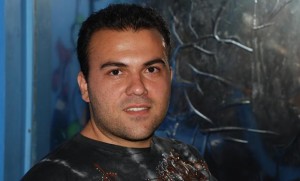 An American pastor that is imprisoned in his homeland of Iran for planting house churches in the country a decade ago has been sent back to general prison after spending a number of days, including his birthday, in solitary confinement.
An American pastor that is imprisoned in his homeland of Iran for planting house churches in the country a decade ago has been sent back to general prison after spending a number of days, including his birthday, in solitary confinement.
The American Center for Law and Justice (ACLJ), which has been fighting for the release of Saeed Abedini, says that the development is a spark of hope following what was a very discouraging week surrounding the pastor.
As previously reported, ten prisoners, including Abedini, were punished by officials last month after they signed a letter expressing concerns about the lack of medical care in prison.
“That apparently prompted prison officials to retaliate, selecting ten of the prisoners and placing them in solitary confinement,” the ACLJ explained.
Abedini is believed to have spent his 33rd birthday, which was on Tuesday, in confinement, a place that his wife Negmeh described as “a small dark whole.”
“As you turn 33 today, I am reminded of the previous years that we have celebrated this very special day together. Our house was always so full of joy and laughter as we rejoiced the day that you were born,” she wrote in a message this week. “Yet today, there is a deep piercing pain in my heart knowing that you will spend your birthday in solitary confinement, constrained to a small room, not knowing when it is day or night, under constant torture and abuse by radicals who are trying to break you and have you deny your faith in Jesus.”
While there is much relief that Abedini has now been removed from solitary confinement, concerns remain over his medical condition. The pastor has been struggling with internal bleeding and kidney issues, but officials advise that he will have to wait several more months to receive assistance.
As previously reported, Abedini wrote a letter to his family earlier this year outlining that one of the reasons he is being denied medical treatment is because Christians are considered “unclean” in the country.
“The nurse would also come to take care of us and provide us with treatment, but she said in front of others ‘in our religion we are not suppose to touch you, you are unclean. Baha’i (religion) and Christians are unclean!’” he outlined. “She did not treat me, and that night I could not sleep from the intense pain I had. According to the doctor’s instructions, they would not give me the pain medication that they would give other prisoners because I was unclean.”
The ACLJ reports, however, that approximately 575,000 people have written letters to Abedini as part of the Save Saeed campaign. The United Nations, the European Union and other international government bodies have also spoken out on his behalf.
“All of this has led to unparalleled pressure on the Iranian regime,” the organization states. “The more pressure is placed on Iran – the more Iran is put on notice that the world is watching its unconscionable human rights abuses – the regime is forced to take action.”
Abedini, who has resided in Idaho with his wife and children since 2005, was incarcerated in Iran’s notorious Evin Prison in late September for allegedly threatening the national security of Iran by planting house churches in the country a decade ago, and for attempting to turn youth in the nation away from Islam and toward Christianity.
Become a Christian News Network Supporter...


